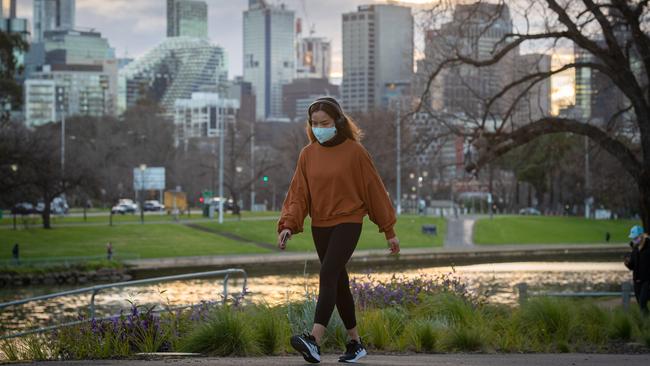
In the short term, coronavirus may well be viewed as a two-year event that changed the nation. The first year delivered the impact, the second the recovery. But I think it will only become evident by the end of the decade that Covid set us on a different path.
It’s 2030. The virus and its necessary lockdowns have resulted in job losses, business closures, a shift in consumer sentiment and even a strengthening of geopolitical alliances, with Australia moving closer to the US. Throughout the 2020s, businesses began the slow task of spreading their supply chains. The idea of sovereign risk usurped sustainability and diversity as drivers of national attention. Preferred partners and proven suppliers were concepts that gained ascendancy.
In the early years after the pandemic there was a reticence about returning to the old carefree ways of close personal interaction and unfettered spending. But as the visceral threat of the virus receded, an irrepressible joie de vivre bubbled up, a collective sigh of relief that manifested in a primal celebration of life. The austerity of lockdown, the drabness of working from home, the fear of contamination were all tossed aside in what seemed like a single, frenzied, climactic moment. We had had enough. It was over. Fashion and glamour and dressing up found new disciples. Concerts, cafes and bars sprang into life.
The unemployment rate began to fall but not as quickly as it rose. Something was holding it back. And then we realised. The coronavirus had taken the lives of the old and the jobs of the young. Pathways to social mobility and prosperity had altered. We needed to both console the bereaved and help the young. There was a rise in casual work and permanent jobs but the coronavirus changed behaviours: fewer waiters were required as cafes permanently incorporated takeaway; fewer sales assistants were needed too, as a greater proportion of turnover was channelled through online platforms.
But there was something else that the coronavirus left in its wake. Something positive. Something we desperately needed but couldn’t find or wouldn’t look for. A new sense of unity. And in a world beyond the pain and fear of 2020, we saw that despite the devastation we were a far stronger community at the end of the decade than we were at the beginning.
For decades prior to the pandemic we were increasingly wracked with division and mistrust. We receded into the safety and the succour of our chosen tribes; we didn’t work collectively for the greater good. Perhaps it was the unifying effect of an external threat, but we came together, we masked up, we connected with neighbours, we galvanised as a people and as a nation on a scale and with a fervour unmatched since the war. This is the legacy of coronavirus.
By 2030 we will have pressed the reset button, laid down our arms, embraced each other, looked to the future and thought about how we can create a better country. We will have even learnt to trust the judgment, skill and courage of leaders to get us through to the other side. All of this is a gift. All of this is worth saving. And all of this shall be the basis upon which we build a better Australia.




So here we are deep into the second wave of the coronavirus in Victoria, wondering whether the outbreak will jump the border and work its way through the rest of the nation. It’s a logical line of inquiry but there is another way to view our experience with the pandemic. And that is by imagining ourselves in the future and looking back.